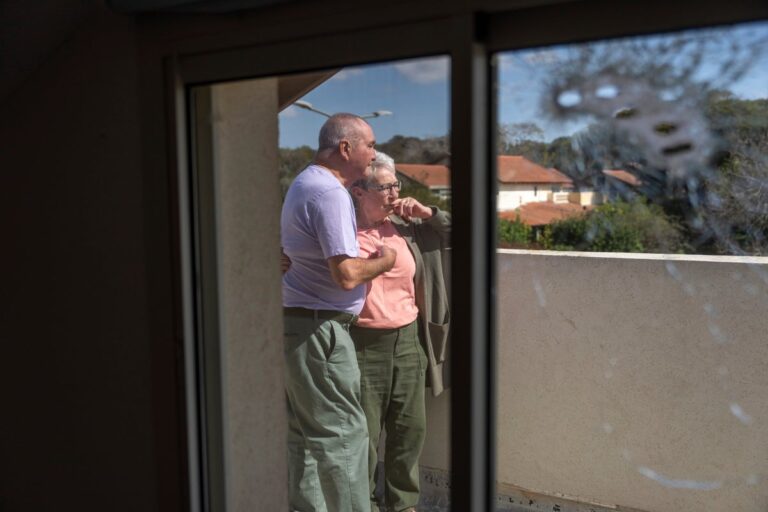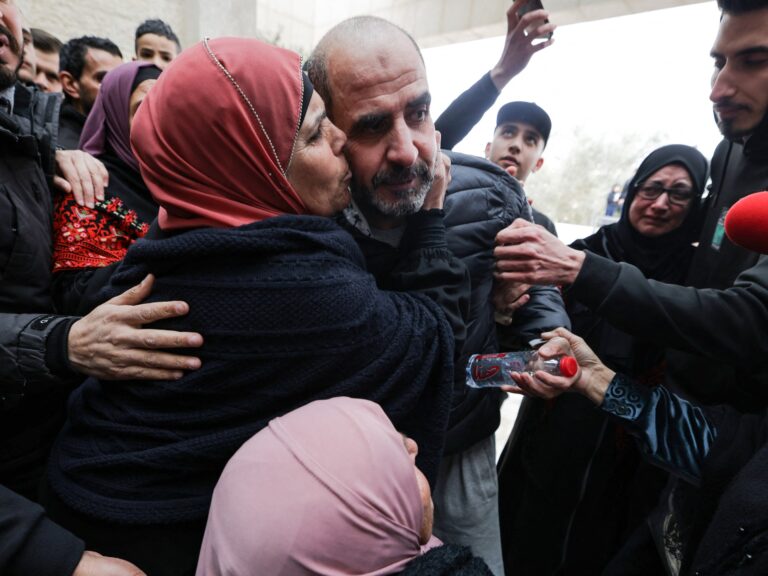Professor Hagai Levine, head of the medical response team for the Hostage and Missing Families Forum, issued a dire warning on Saturday, saying the remaining captives may not survive much longer.
“As we have warned, all the hostages are in mortal danger,” Levine said in a statement. “No one should be surprised that people emerging from hell look the way they do. What we see is the result of unthinkable suffering—starvation, thirst, darkness, physical and psychological abuse, lack of medical care, and isolation.”
“The hostages released today will need long-term rehabilitation, and we trust their families and medical teams to give them the best care possible. But full recovery is impossible while their fellow captives remain in Hamas’s hands.”
Levine emphasized the urgent need to bring the 76 remaining hostages home, warning that their condition may be even worse than those freed today.
“Every additional day in captivity puts them at risk of death,” he said. “We must act now to secure their release. To those horrified by these images—don’t just be shocked. Take action. Go to the streets, make your voices heard, and demand that every last hostage is rescued.”
Hospitals preparing for intensive treatment
Doctors at Sheba Medical Center and Ichilov Hospital are preparing for round-the-clock intensive care for the three freed hostages, who show clear signs of severe malnutrition, muscle wasting, and extreme weight loss.
Dr. Itai Pessach, director of the Edmond and Lily Safra Children’s Hospital at Sheba Medical Center, described their condition as “extremely concerning”, noting that prolonged starvation has had a profound impact on their overall health.
Medical teams are particularly concerned about extreme muscle depletion and protruding bones, indicating long-term starvation; prolonged confinement in total darkness, which may have caused severe Vitamin D deficiency, impacting bone strength, immune function, and organ health; and potential internal organ damage, as a result of prolonged malnutrition, dehydration, and possible abuse.
Doctors warn of refeeding syndrome
One of the most dangerous medical challenges the freed hostages now face is refeeding syndrome, a potentially fatal condition that occurs when a malnourished body suddenly begins receiving nutrients again.
This can trigger severe electrolyte imbalances, heart failure, and organ collapse.
Dr. Yoav Hoffman, a senior physician in the nutrition department at Ichilov Hospital, explained the risks involved.
“The body, after enduring such prolonged deprivation, cannot immediately handle a normal diet,” Hoffman said. “We must introduce food carefully, monitoring electrolyte levels, organ function, and cardiac health to prevent complications.”
To mitigate the risk, hospitals have deployed teams of specialists in nutrition, cardiology, neurology, and trauma recovery to carefully reintroduce food and monitor for complications.
Pressure mounts on Netanyahu for urgent action
As Israel processes the devastating images of the freed hostages, public pressure is growing on Prime Minister Benjamin Netanyahu to secure the release of those still held by Hamas.
Protests have erupted in Tel Aviv and Jerusalem, with families of the hostages and their supporters demanding that the government do whatever it takes to bring them home.
Sharon Avraham, whose brother remains in captivity, spoke at a demonstration outside the Knesset.
“We need action, not delays,” she said. “Every day in captivity is a day closer to death. We cannot wait any longer.”
With the global spotlight on the hostages’ dire condition, the question remains: how much longer will Israel—and the world—wait before ensuring the survival of those still in captivity?


